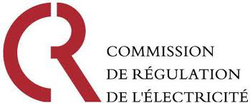
Jan. 23, 2015
Breaking news

What does Regulating to operators? How do they feel? Do they internalize? Does it means to them, simply a cost or an impact on their strategy on the markets?
The question is all the more important that you adhere to the theory of incentives, whereas the adequate regulatory techniques are those that produce the desired behavior by regulated operators.
The issue is not whether the Regulating is included in spending. This is acquired. For example, in two years the banks move internal forces of certain services, such as credit, to the compliance department and regulation. The regulation may represent a very high share of costs: it lies in the fact that through compliance the regulatory system has internalized the costs of regulation in the firms.
But does it make to change the strategic choice of the operator on the market, not only increase the number internal processes?
To listen Lloyds Blankfein, chairman of Goldman Sachs in Davos, words immediately commented in the British press as considerations allayed regarding Regulation!footnote-22, we doubt it.
Mr. Blankfein Lloys who also sits on the board of the Harvard Law School, asked about the question of whether the bank doesn't suffer from the pressure of regulations and supervisors replied that must be considered especially in the very design of technical systems to meet compliance but that for him, Regulation isn't really an annoyance: it is a "background noise". He compares it to music: something that he listens a lot, but while he is doing its job. Something which remains outside.
This means that Regulation occupies its technical regulatory services but doesn't affect its own work of invest bank president.
We can rejoice, since it shows that Regulation doesn't impede free enterprise and the operator's choice. One might worry if Regulation should have an "educational" function wanting influence how the president himself decides. In this case, Regulation must cease to be a kind of expensive elevator music.
It is not sure that regulators and supervisors have the same understanding
Updated: Sept. 19, 2012 (Initial publication: Sept. 19, 2011)
Sectorial Analysis

Translated Summaries
ENGLISH
On November 4, 2010, the French telecommunications regulator obliged a fiber optic network operator to obey certain conditions for the access to civil engineering infrastructures that it had not accepted in its contracts with the civil engineering infrastructure operator. The Court of Appeals of Paris confirmed this ruling on June 23, 2011 on the grounds that the civil engineering operator required all fiber optic network operators to behave identically.
FRENCH
Par une décision du 4 novembre 2010, le régulateur français des télécommunications avait obligé un opérateur de réseau fibre, pourtant titulaire de contrats, à observer des contraintes contenues dans l’offre “accès au génie” qu’il n’avait pas acceptées. La décision est approuvée par la Cour d’appel de Paris le 23 juin 2011, car l’opérateur du génie civil a besoin de comportements homogènes de la part de tous les opérateurs de fibres optiques.
SPANISH
El principio de los estándares de la neutralidad (el ejemplo de estándares de contabilidad)
El tema de la neutralidad trae a luz un cierto número de ideas preliminares.
Para comenzar, la figura de Buda viene a mente, porque él sólo expresa la naturaleza interminable que es el tema de la neutralidad, ya que al pensar en el hecho de que él no piensa en absolutamente nada, Buda aún así piensa en algo. También me hace pensar el intento constante de la música contemporánea de alcanzar una forma de neutralidad: pero este objetivo permanece inalcanzable, porque es evidente que la búsqueda de lo neutral, en un sonido o un timbre, probablemente nunca se podrá encontrar.
.....................
Other translations forthcoming.
Other translations fortcoming.
Updated: Sept. 10, 2012 (Initial publication: June 18, 2012)
Sectorial Analysis

Updated: Sept. 19, 2011 (Initial publication: Sept. 19, 2011)
Contributions

